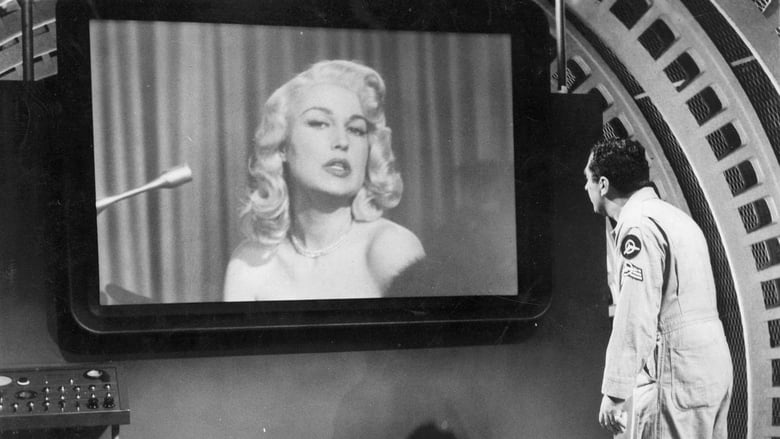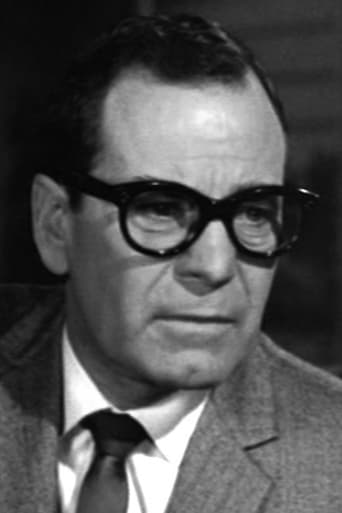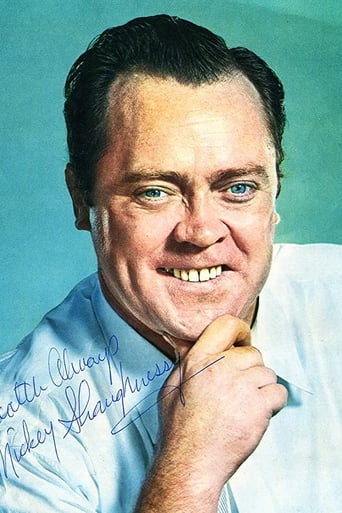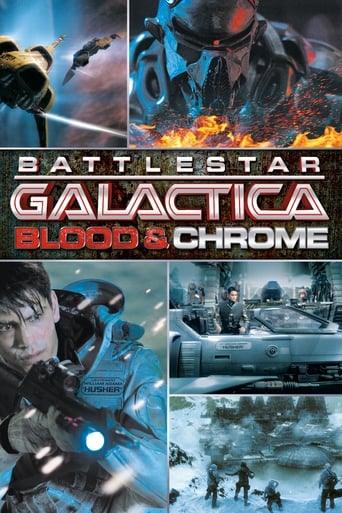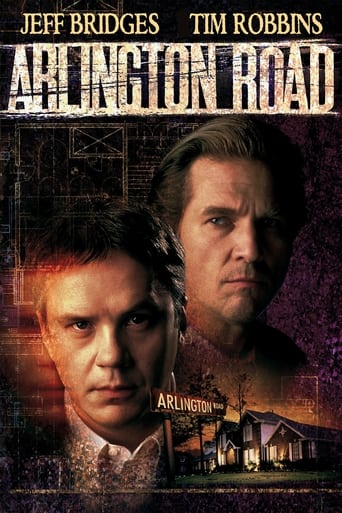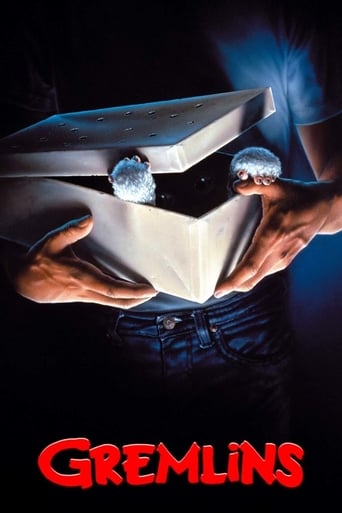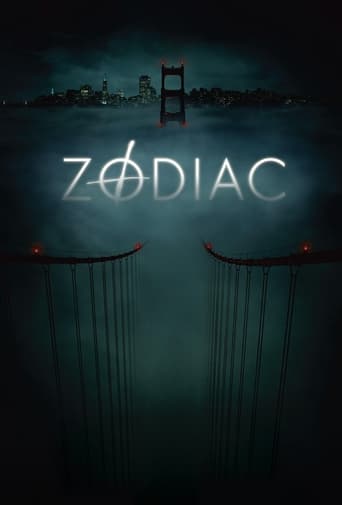Conquest of Space (1955)
A team of American astronauts leave their space station on the first mission to Mars, but the captain's religious beliefs may get in the way.
Watch Trailer
Cast


Similar titles
Reviews
Such a frustrating disappointment
Highly Overrated But Still Good
As Good As It Gets
The film creates a perfect balance between action and depth of basic needs, in the midst of an infertile atmosphere.
Producer George Pal was a man of vision and accurate imagination. The one thing that he can be given undeniable credit for is how accurately he portrayed the surface of Mars. The Mars Explorer photographs when we had them revealed a world not unlike what we see in Conquest Of Space. Of course a lot of credit is also due to scientist Willy Ley whose books are the basis of the film.Conquest In Space is a future world concept from 1955 where we now have a World Space Organization where the USA is taking the lead in space exploration. An international space station is constructed and people live there months at a time. It's under the command of General Walter Brooke who is concerned with the psychological problems of being too long in space. So he wants a handpicked crew for the exploration of the moon.But the authorities on earth are shooting for bigger game. Kind of unrealistically they decide to forget the moon and aim for Mars. Brooke is in command and his eventual crew is his own son Captain Eric Fleming, Sgts. Mickey Shaughnessy, Benson Fong, and Phil Foster. In this future world no blacks or women are on the space station. The presence of the latter might well have cured at least some of the problems the guys were having.On the way there Brooke develops some space problems of his own as he gets downright metaphysical, wondering if God meant for us to leave the planet earth that He bequeathed as a domain for man. Those issues cause all kinds of problems for the rest of the Mars expedition that are the basis for the plot of the film.Conquest Of Space is imaginative but also intelligent. No hostile Mars creatures are found at least not in the corner of Mars they land. It was a realistic assessment of man surviving in a hostile environment and one of the better science fiction films of the Fifties.
Classic sci-fi film from producer George Pal about astronauts on board a space station known as The Wheel. The Wheel's crew is made up entirely of men. There's no obligatory female crew member for all the men to make passes at. Had there been one, rest assured handsome leading man type Eric Fleming would have been all up on that. The commander (and creator) of The Wheel, General Merritt (Walter Brooke), has to assemble a small team for the first manned mission to Mars. The General's not happy about this but he gathers the team anyway. It includes his son (Eric Fleming), a medical doctor (Ross Martin), an electronics expert (Phil Foster), and a geologist (Benson Fong). Soon after their mission is underway, the General has a mental breakdown and begins to have doubts not only about their mission, but whether God would approve of man's exploration of space altogether. I've seen people describe this film as both pro and anti-religious. It's funny how people's sensitivities and prejudices flare up on both sides when it comes to religion and politics. I don't find the film anti-religious at all. It's maybe anti-religious NUT but what sane person isn't? As for the flip side, it's certainly hard to argue the film is pushing a religious agenda when the General is shown as being mentally unbalanced to the point of trying to murder his own son. The film also ends on a positive note about man's exploration of space, as well as a cute wink that the Almighty approves.The cast is solid. Walter Brooke has the most difficult role but he handles it well, I think. I didn't always understand his character's thought process but I did believe that he was losing his grip with each passing moment. Eric Fleming exceeds expectations, particularly in the later half of the movie. He has "stock leading man" written all over him but he does a good job. Comic relief Phil Foster grated on my nerves the first time I watched this but in subsequent viewings he's grown on me to where he's become one of my favorite parts of the film! Benson Fong represents an earnest attempt on the filmmakers' part to include some diversity in the cast. You would think this would be applauded but a lot of reviews simply point out a few stereotypical facets of his character. Admittedly, his "little man" speech is deserving of a few laughs, well-intentioned though it may have been. Regardless, his character is an intelligent, thoughtful man who is presented as an equal to his Caucasian peers and plays a significant role in the film. How is this not worthy of admiration? I love sci-fi films from the '50s. I see so many complaints about this and other space exploration films of the time that nitpick all the technical errors. The dreaded word "realism" is often used as a bludgeon in these critiques. They say this or that isn't possible, so therefore the story fails. The best of these old films are full of imagination and wonder and a sense of awe at what might be possible, not dwelling on what isn't. That, to me, is what science fiction is all about. As for Conquest of Space, it's an extremely entertaining sci-fi movie with good special effects for the time. It also has rich colors and fun sets. This was back before all sci-fi films were drab and monotone. If you're a fan of classic science fiction movies, you should like this one.
During the 1950s, Hollywood made a ton of films about voyages to the Moon or Mars. Most of these films look very quaint and old fashioned when seen today, but you must allow for the fact that they simply couldn't produce the grand special effects we take for granted in more modern films. Plus, while the way the trips occur seem pretty strange compared to the actual moon landings, you must also allow that back in the 1950s it was still all speculation--they simply didn't know better about many of the important aspects of such a journey.However, despite some very old fashioned ideas about such a voyage, CONQUEST OF SPACE is a very good film for its day. Much of this is because unlike most of the other films of the genre, this one does not use stock clips of old V-2 launches and features all original rocket and space shots. Sure, the models in this production are a bit on the cheesy side, but you can tell they at least tried to get it right. In particular, what I founds interesting is that they used a space shuttle-like craft to go to Mars--not a more traditional rocket.The film was also interesting because instead of the traditional bug-eyed monsters or malevolent external forces like some films employed, the big nemesis of this film is space fatigue and mental illness caused by this exhaustion. The only negative about this was later in the film when the general obviously was insane due to these effects and yet his best friend so doggedly refused to admit it--even when the guy did everything but put on a hat and declare that he was Napoleon!! The only other thing that bothered me about the film is that like some of these types of films, there was a crazy notion that the film needed a comic relief crew member (Siegel). While not an uncommon plot device, you'd sure think that the Earth with its billions of people would have someone better and smarter than him!! Overall, an excellent film for people like me who like this genre, though I can pretty safely assume that many people today would not be particularly interested in the film. It's a shame, as it's an interesting glimpse into the 1950s.
Warning: Spoilers ahead...This film contains some amazing predictions: The movie was written in 1953, filmed in 1954, and released in the spring of 1955. The time setting of the story is, I believe, the mid-1980s or early 1990s. The older Americans on the station are veterans of a war fought (in their past, our future): in "Indo-China" (Vietnam).One of NASA's greatest concerns, as they plan the Mars expedition, is how to prevent tensions among the crew from escalating to the point of physical violence, or worse. The time line, 8 months to get there, and another 8 months for the flight back, plus many months of time spent on the surface present one of the biggest problems that they face -- and who's "solutions" are not guaranteed.Mars is shown as containing liquid water, which is probably true."The Wheel" has an international crew.


